CONSEIL ARTISTIQUE
Nicolas Petrovitch-Njegosh - Montenegro
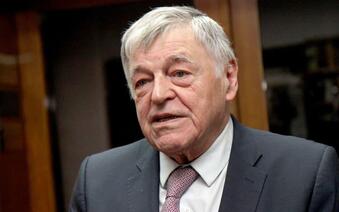
Prince héritier du Monténégro.
Né le 7 juillet 1944 à Saint Nicolas du Pélem (Côtes d’Armor).
Nationalités : Française et Monténégrine
Il fait toutes ses études à Paris.
Il obtient son diplôme d'architecte en 1971 à l’Ecole Nationale Supérieure des Beaux-Arts de Paris et travaille depuis comme architecte indépendant.
Son expérience professionnelle s’est déployée dans plusieurs directions : Auto-construction, environnement urbain, urbanisme, construction de bâtiments industriels et agricoles, rénovation de bâtiments administratifs et commerciaux.
Après 70 années d’exil de la famille Petrovitch Njegosh, suite à l’annexion du Monténégro à la Serbie, il retourne au Monténégro à l’occasion du rapatriement des corps du Roi Nikola, de la Reine Milena et des Princesses Vijera et Ksenija le 1 octobre 1989.
Inspiré par cet événement et peu de temps après, la chute du mur de Berlin Il crée et dirige la biennale d'Art contemporain de Cetinje, capitale royale du Monténégro de 1991 à 2002.
Ces retrouvailles avec le Monténégro, lui ont permis de renouer des contacts avec plusieurs membres des familles royales européennes dont certaines étaient liées par les mariages à la famille Petrovitch Njegosh.
Dès le début du conflit yougoslave, il lance un appel à la paix au lendemain du premier bombardement de Dubrovnik et appelle les Monténégrins à ne pas participer au conflit. Durant la période du conflit, il crée et préside l'association IZBOR (défense juridique des victimes de discrimination ethnique dans l'ex-Yougoslavie).
Il crée et Préside également l'association SEM (Solidarité Europe Monténégro) qui organise plusieurs campagnes d'aide humanitaire au Monténégro.
Depuis 2002, il organise avec l'Ecole Nationale Supérieure des Beaux-Arts (Paris la Seine) plusieurs ateliers d'architecture et d’urbanisme dans le village de Gornja Lastva, au Monténégro.
Cinq années après l’indépendance retrouvée du Monténégro, en juillet 2011, le Parlement du Monténégro vote une Loi sur le statut des héritiers de la dynastie qui inclut la création d’une Fondation familiale Petrovitch Njegosh. La Fondation dont il est le Président a un triple champ d’action : Solidarité, Environnement et Patrimoine Culturel.
Depuis 2012 la Fondation a initié, soutenu et accompagné plus de 200 projets dans ces différents secteurs au Monténégro.
Le 21 avril 2017 il est décoré à Paris, au Ministère des affaires étrangères, au rang de chevalier de la Légion d’Honneur par Madame Florence MANGIN Directrice de l’Europe Continentale.
La musique tient une place essentielle dans la famille Petrovitch Njegosh. Le Prince Nicolas joue lui-même de la flûte traversière et pratique en amateur la musique de chambre.
De 2009 à 2015, Il a présidé l’association Rive Gauche Musique créée par son gendre Anton Martynov, violoniste de renom et sa fille, la Princesse Altinaï Petrovitch Njegosh. L’Association a organisé six années durant, une saison musicale annuelle dans différents lieux de la rive gauche parisienne. Rive Gauche Musique a évolué pour devenir en 2016 le Festival International de violon à Paris : « Le printemps du violon » dont il est Président d’honneur.
Né le 7 juillet 1944 à Saint Nicolas du Pélem (Côtes d’Armor).
Nationalités : Française et Monténégrine
Il fait toutes ses études à Paris.
Il obtient son diplôme d'architecte en 1971 à l’Ecole Nationale Supérieure des Beaux-Arts de Paris et travaille depuis comme architecte indépendant.
Son expérience professionnelle s’est déployée dans plusieurs directions : Auto-construction, environnement urbain, urbanisme, construction de bâtiments industriels et agricoles, rénovation de bâtiments administratifs et commerciaux.
Après 70 années d’exil de la famille Petrovitch Njegosh, suite à l’annexion du Monténégro à la Serbie, il retourne au Monténégro à l’occasion du rapatriement des corps du Roi Nikola, de la Reine Milena et des Princesses Vijera et Ksenija le 1 octobre 1989.
Inspiré par cet événement et peu de temps après, la chute du mur de Berlin Il crée et dirige la biennale d'Art contemporain de Cetinje, capitale royale du Monténégro de 1991 à 2002.
Ces retrouvailles avec le Monténégro, lui ont permis de renouer des contacts avec plusieurs membres des familles royales européennes dont certaines étaient liées par les mariages à la famille Petrovitch Njegosh.
Dès le début du conflit yougoslave, il lance un appel à la paix au lendemain du premier bombardement de Dubrovnik et appelle les Monténégrins à ne pas participer au conflit. Durant la période du conflit, il crée et préside l'association IZBOR (défense juridique des victimes de discrimination ethnique dans l'ex-Yougoslavie).
Il crée et Préside également l'association SEM (Solidarité Europe Monténégro) qui organise plusieurs campagnes d'aide humanitaire au Monténégro.
Depuis 2002, il organise avec l'Ecole Nationale Supérieure des Beaux-Arts (Paris la Seine) plusieurs ateliers d'architecture et d’urbanisme dans le village de Gornja Lastva, au Monténégro.
Cinq années après l’indépendance retrouvée du Monténégro, en juillet 2011, le Parlement du Monténégro vote une Loi sur le statut des héritiers de la dynastie qui inclut la création d’une Fondation familiale Petrovitch Njegosh. La Fondation dont il est le Président a un triple champ d’action : Solidarité, Environnement et Patrimoine Culturel.
Depuis 2012 la Fondation a initié, soutenu et accompagné plus de 200 projets dans ces différents secteurs au Monténégro.
Le 21 avril 2017 il est décoré à Paris, au Ministère des affaires étrangères, au rang de chevalier de la Légion d’Honneur par Madame Florence MANGIN Directrice de l’Europe Continentale.
La musique tient une place essentielle dans la famille Petrovitch Njegosh. Le Prince Nicolas joue lui-même de la flûte traversière et pratique en amateur la musique de chambre.
De 2009 à 2015, Il a présidé l’association Rive Gauche Musique créée par son gendre Anton Martynov, violoniste de renom et sa fille, la Princesse Altinaï Petrovitch Njegosh. L’Association a organisé six années durant, une saison musicale annuelle dans différents lieux de la rive gauche parisienne. Rive Gauche Musique a évolué pour devenir en 2016 le Festival International de violon à Paris : « Le printemps du violon » dont il est Président d’honneur.
Miki Manojlovic - Serbia
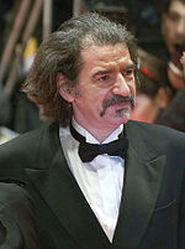
Predrag "Miki" Manojlović (born April 5, 1950, Belgrade)
is a Serbian
actor, famous for his
starring roles in some of the most important films of former Yugoslav cinema.
Since the early 1990s, he successfully branched out into movies made outside
the Balkans, meaning that he's currently active in productions all over Europe. At February 2009 the Serbian Government established him as a
president of the Serbian Film Center.
He grew up in a family of stage actors - father Ivan Manojlović and mother Zorka Doknić. After his screen debut in 1970, young Predrag continued to appear in numerous films and TV dramas made in SFR Yugoslavia, some of which, like the 1975 TV series Grlom u jagode where he memorably played Miki Rubiroza, achieved cult status.
He is arguably best known for the role of the father in Emir Kusturica's 1985 film When Father Was Away on Business and as a tragic opportunist in 1995's Underground (also by Kusturica). He is known for his versatility which helped him make a strong impression both in starring and character roles, as well as dramas and comedies, with his small role in the 1992 hit comedy Mi nismo anđeli being an example of the latter. He played the role of Agostino Tassi in the 1997 film Artemisia and that of Miki in Irina Palm. During the NATO bombardments in 1999, Miki said: "Westerners must understand that no one can constraint anybody, that the Balkans need to live their own life with their own multiplicity of cultures, religions, languages. They must understand that they should not worsen the situation with their own frustrations and their ideas which do not function, that the more bombs will fall in Yugoslavia, the less safety will there be in Europe."
He grew up in a family of stage actors - father Ivan Manojlović and mother Zorka Doknić. After his screen debut in 1970, young Predrag continued to appear in numerous films and TV dramas made in SFR Yugoslavia, some of which, like the 1975 TV series Grlom u jagode where he memorably played Miki Rubiroza, achieved cult status.
He is arguably best known for the role of the father in Emir Kusturica's 1985 film When Father Was Away on Business and as a tragic opportunist in 1995's Underground (also by Kusturica). He is known for his versatility which helped him make a strong impression both in starring and character roles, as well as dramas and comedies, with his small role in the 1992 hit comedy Mi nismo anđeli being an example of the latter. He played the role of Agostino Tassi in the 1997 film Artemisia and that of Miki in Irina Palm. During the NATO bombardments in 1999, Miki said: "Westerners must understand that no one can constraint anybody, that the Balkans need to live their own life with their own multiplicity of cultures, religions, languages. They must understand that they should not worsen the situation with their own frustrations and their ideas which do not function, that the more bombs will fall in Yugoslavia, the less safety will there be in Europe."
Saida Mustajbegović - Bosnia and Herzegovina

Saida Mustajbegović was born on October 10, 1976 in Prijepolje (Serbia), Yugoslavia. She is a writer, poet, director and sociologist from Bosnia and Herzegovina. Her academic education took place in Sarajevo, where she studied Sociology at the Faculty of Political Science, Comparative Literature at the Faculty of Philosophy, and Journalism with the French-Bosnian Media Plan School/Ecole Superieure de journalisme Lille. The combination of these fields is clearly reflected in the variety of her creative output, which includes literary and scientific works, screenplays and documentary films.
Her first book of fiction, The House Without a Roof, the poetry collection Unworn Dreams and the biography Ani Radošević: The Poetess of the Movement represent only a fraction of her numerous literary publications. Her work in the film industry explores a wide spectrum of topics, including transgenerational trauma and narratives reflected in the cultural patterns of the Balkans. Her first documentary film Colours and Rhythms of Unrest provides an insight into the engaged art between the two world wars, as well as its influence and relevance in today’s context.
She is the recipient of multiple awards for her contribution to literature and film, and her work is deeply rooted in the research on the identity and history of the Balkans. She resides in Sarajevo, where she continues to work as a researcher, writer and filmmaker, enriching the regional cultural landscape with her work and vision.
Her first book of fiction, The House Without a Roof, the poetry collection Unworn Dreams and the biography Ani Radošević: The Poetess of the Movement represent only a fraction of her numerous literary publications. Her work in the film industry explores a wide spectrum of topics, including transgenerational trauma and narratives reflected in the cultural patterns of the Balkans. Her first documentary film Colours and Rhythms of Unrest provides an insight into the engaged art between the two world wars, as well as its influence and relevance in today’s context.
She is the recipient of multiple awards for her contribution to literature and film, and her work is deeply rooted in the research on the identity and history of the Balkans. She resides in Sarajevo, where she continues to work as a researcher, writer and filmmaker, enriching the regional cultural landscape with her work and vision.
Hristo Boytchev - Bulgaria
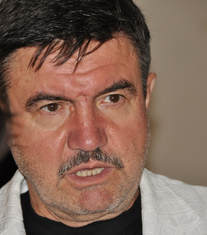
He is a Bulgarian writer born on March 5, 1950. The Colonel Bird won the British Council Award for Central and Eastern Europe, and was later adapted into a film, Voenno Poleva Bolnitza (Field Mental Asylum). He is regarded as one of Bulgaria's leading playwrights.
Dimitris Kerkinos - Greece
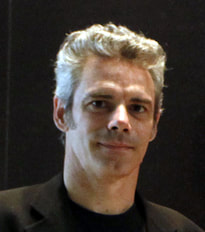
Dimitris Kerkinos (born August 9th, 1963) studied Film Studies at the University of Manitoba, Canada. He did his Ph.D. dissertation on “Society and Cinema in Cuba of the 90s” for the Department of Social Anthropology and History at the University of the Aegean, Greece. He jointed the Thessaloniki IFF in 1999, and since 2002 he is programming the Balkan Survey Section. He has curated retrospectives and tributes to directors and national cinemas for TIFF and TDF (Thessaloniki Documentary Festival) and has also advised and programmed tributes to Greek cinema for KVIFF, Transylvania IFF, T-Mobile New Horizons IFF. He has published essays on cinema and anthropology and has edited many documentary and fiction film monographs for TIFF and TDF (i.e. Carol Reed, Goran Paskaljević, Cristian Mungiu, Patricio Guzmán, Peter Wintonick). He lectured Visual Anthropology and Ethnographic Documentary at Panteion University in Athens (2004-2008).
Sophia Georgiadou - Greece
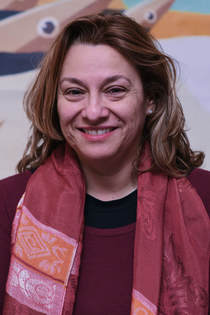
Sophia Georgiadou
Vjosa Berisha - Kosovo

Vjosa Berisha is co-owner and chief executive of the film and television production, public relations and arts company B2 established in Kosovo in 2003 and later in Albania (2005). She is also Festival Director and co-founder of Prishtina International Film Festival which was founded in 2008. She owns an MA in Media and Communication from University of Westminster, London UK, and a Postgraduate diploma in Contemporary Diplomacy from University of Malta, in Malta. At the moment she is actively involved in managing works of the two B2 offices, in Kosovo and Albania; film producing and management of PriFest - Prishtina International Film Festival, which happens every year in April. The 10th edition of the festival will be in 17-23 July 2018. PriFest is the most prominent and Internationally recognised Feature Film Festival in Kosovo. It happens in the capitol of Kosovo, Pristina.
Eno Milkani - Kosovo
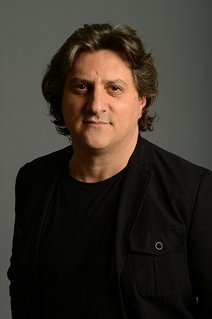
Eno Milkani is a Film Director, Editor, Cinematographer and Producer based in Tirane Albania. He is known for the film "Trishtimi i Zonjes Shnajder" and "Edeni i Braktisur" as Director and Editor. Beside these two films he is also Director of many documentaries and other short films. He is Delegate Producer of Open Door film directed by Florenc Papas.
Karpo Godina - Slovenia
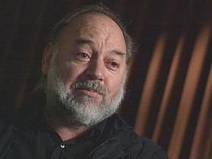
Karpo Ačimović Godina (born 26 June 1943) is a Slovenian cinematographer and film director. He is one of the most important representatives of the Yugoslav cinematic movement "Black Wave", which produced numerous socio-critical films between 1964 and 1973. His film Artificial Paradise was screened out of competition at the 1990 Cannes Film Festival. Selected filmography: Occupation in 26 Pictures (1978), Artificial Paradise (1990).
Bashkim Shehu - Albania

Born in Tirana in 1955, a graduate of Albanian Literature and Language at the University of Tirana in 1979, fluent in many languages (French, English, Italian, Spanish, and Catalan) from which he translates into his own language, Bashkim Shehu is above all a fiction writer. Author of a dozen novels and many collections of short stories, his writings are translated into different languages from English, French, Spanish, German to even Rumanian and Serbian.
From a very young age, Bashkim Shehu dedicated himself to literature. On the other hand, he had the occasion to experience in his own flesh the extremes of a totalitarian system in which he was born and raised. Son of one of the most important members of the system's top leadership, purged by the dictator in 1981, he spent eight years in what is known as the “Albanian Gulag”, sentenced twice for what was considered a crime of opinion. He was released with the collapse of the dictatorship in 1991.
Bashkim Shehu moved to Barcelona in 1997 thanks to the program Asylum Cities of the International Parliament of Writers and he was representative of this association in this city from 1998 to 2000. Since then he has served as adviser of the general director of the Centre de Cultura Contemporània de Barcelona (CCCB), from 2001 to 2011, and has continued his work as a literary writer and translator. Some of the authors he has translated into Albanian are: George Steiner, Hannah Arendt, Søren Kierkegaard, Roberto Bolaño (2666), Gabriel García Márquez, Ernesto Sábato, Javier Cercas, Javier Marías, Eduardo Mendoza, Jaume Cabré, J. G. Ballard, Eric Hobsbawn, Alain Finkielkraut, Zygmunt Bauman and many more.
From a very young age, Bashkim Shehu dedicated himself to literature. On the other hand, he had the occasion to experience in his own flesh the extremes of a totalitarian system in which he was born and raised. Son of one of the most important members of the system's top leadership, purged by the dictator in 1981, he spent eight years in what is known as the “Albanian Gulag”, sentenced twice for what was considered a crime of opinion. He was released with the collapse of the dictatorship in 1991.
Bashkim Shehu moved to Barcelona in 1997 thanks to the program Asylum Cities of the International Parliament of Writers and he was representative of this association in this city from 1998 to 2000. Since then he has served as adviser of the general director of the Centre de Cultura Contemporània de Barcelona (CCCB), from 2001 to 2011, and has continued his work as a literary writer and translator. Some of the authors he has translated into Albanian are: George Steiner, Hannah Arendt, Søren Kierkegaard, Roberto Bolaño (2666), Gabriel García Márquez, Ernesto Sábato, Javier Cercas, Javier Marías, Eduardo Mendoza, Jaume Cabré, J. G. Ballard, Eric Hobsbawn, Alain Finkielkraut, Zygmunt Bauman and many more.
Bulent Kucukerdogan - Turkey
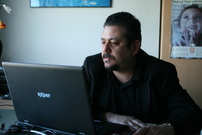
After taking a degree in Literature at Istanbul University, he graduated and got his PhD at Institute of Social Sciences, Istanbul, Department of Radio-Television and Cinema. Author of several books and many important articles and papers delivered in international symposiums, he is an honourable member of the globally most known scientific foundation and associations, and the Vice Coordinator of CILECT SEECS-South East European Cinema Schools Association. As a Specialist in video and film editing, he is respected advisor and editing supervisor of a number of short, documentary and feature films in Balkan region and jury member of the regional film festivals.
Eugen Serbanescu - Romania
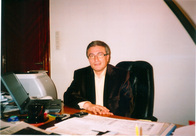
Eugen Serbanescu is the General
Manager of the Romanian National Cinematography Center. He graduated Aerospace
Engineering at the Polytechnic University of Bucharest, Mastering at the
English Language Program of the University of Bucharest and taking his Ph. D in
Aerodynamics also in Bucharest, in 1987. He has worked as Aeronautical Engineer
and Scientific Researcher from 1980-89. Since then he’s held various positions
in Romania Libera (from Editor to
Chief of the Domestic Policy Department, to Deputy Editor-in-Chief. Furthermore
he has worked as a Media Relations Consultant for the UNDP, Spokesman for the Government of Romania and Secretary of State, Head of the Press Department, Consul General of
Romania in Los Angeles, Consul General of Romania in New York and various other
working positions. He has numerous publications, conference papers, novels and
film scripts. His extraordinary rich experience also includes participation in
both round table and individual interviews on TVR, PRO-TV, PRIMA - TV, Realitatea TV, Radio Romania, Radio Free Europe, Voice of America,
Washington, D.C., BBC Radio, Radio Contact, Radio Tinerama and being moderator
at "Front Line," a weekly political talk show on Tele7 abc, 1994-1996.
Anita Juka - Croatia
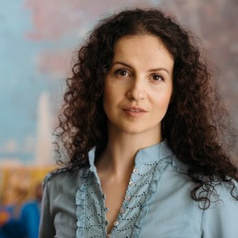
Born in Zagreb in 1979. Graduated from the Law Faculty in Split. In 2003 he founded 4film d.o.o. production house where she works as a producer on all home projects including documentary, feature films, animated films and various media campaigns. She produced the most successful Croatian documentary "What About the Day", directed by Ivona Juka, who won numerous awards at international festivals such as the GoEast Film Festival for the best documentary film, Sarajevo Film Festival - Heart of Sarajevo, DocMa - the best European documentary, but also achieved significant cinema distibution in the Balkan countries. Her other successful documentaries are: "The Honey Punk" directed by Branko Schmidt and "The Garden of Blue Roses" directed by Mladen Santic. Anita is also a very successful producer and co-producer of feature films including "Tu" (by Zrinko Ogresta) who won Small Crystal Globe - Special Jury Prize at the 39th Karlovy Vary IFF, Grand Prix at the 9th International Film Festival in Milan, Critics' Prize at the 26th Mediterranean Film Festival Montpellier et al., and "Slovenka", recently co-produced by the international omnibus "Some other stories".
